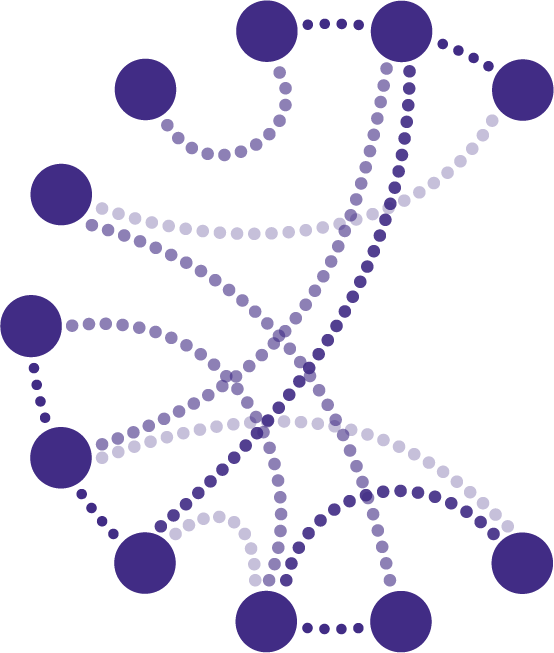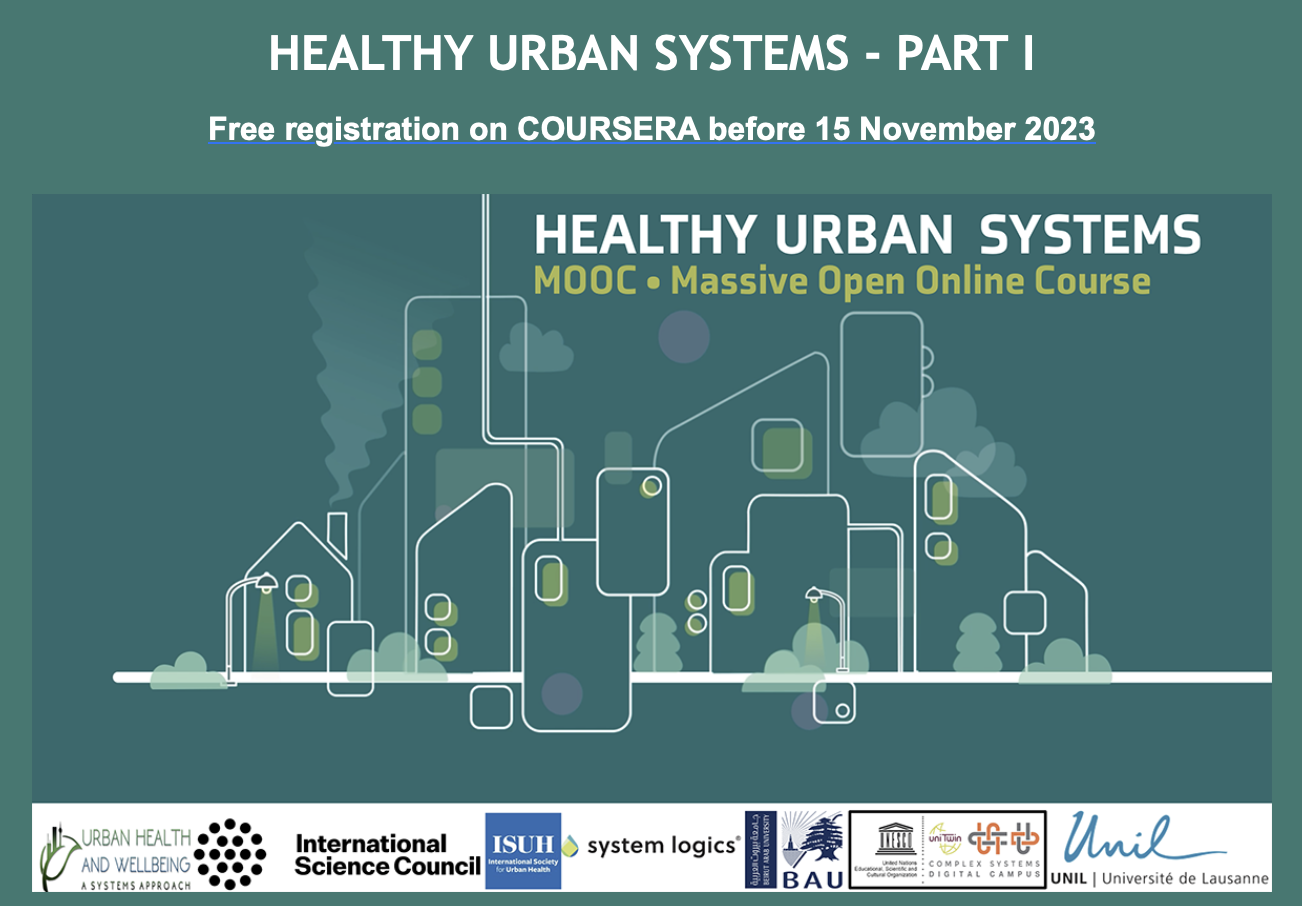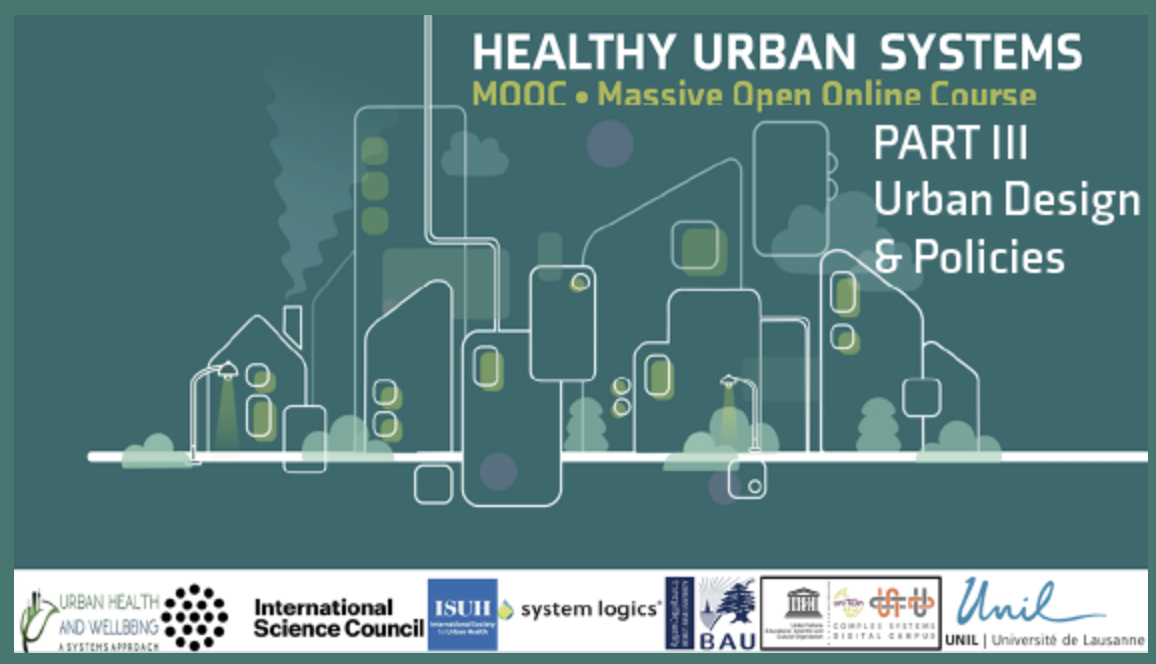
The MOOC – Healthy Urban Systems Part II
is now available on Coursera!
You will learn to:
- Address urban health through complex multidisciplinary approaches
- Use multidimensional and multiscale concepts, methods, and ecosystem frameworks
- Mobilize and support all players directly or indirectly involved in urban health.
Dedicated to all levels of disciplines linked to the city, health, the environment, social and human sciences, data sciences…
The MOOC is entirely in English, with possible subtitles in French and Chinese.
The part II is dedicated to Theories and models
Module 3: Theoretical frameworks
- Theories
- Frameworks, theories, and models in relation with the fundamental concepts
- Complex systems, Urban metabolism, Urban Ecology, Eco-system
- Transition and resilience
- Applications
- Scaling effects in cities
- Cognitive processes: Dissonance and mismatch
- Participatory approaches
- Collective and systems intelligence
Module 4 : Tools for modeling
- Systems Modeling
- Different Methods of Modelling (SD Simulation, Agent based, holistic system modeling) / individual – aggregated.
- Modelling an epidemic: Agent Based modelling vs system dynamics.
- Implementation of concrete projects
- AIRQ+ for outdoor Air Quality
- CHEST for Household air quality
- HEAT Model
- Eco-policy© model
- Holistic Systems Modeling©
Materials: videos, glossary, quizzes, exercises, discussion forum
Duration: 4 weeks – 1 session per week to be taken at your convenience
Workload: 2 to 3 hours per week
Accreditation (possible and not compulsory): 2 ECTS for PART II, issued by the University of Lausanne via COURSERA (US$ 25)
General coordination:
University of Lausanne – UNIL-EPFL Foundation for Continuing Education
Prof. Céline Rozenblat, Jeff van de Poel
Don’t miss this extraordinary opportunity, for more information click on the link below:


